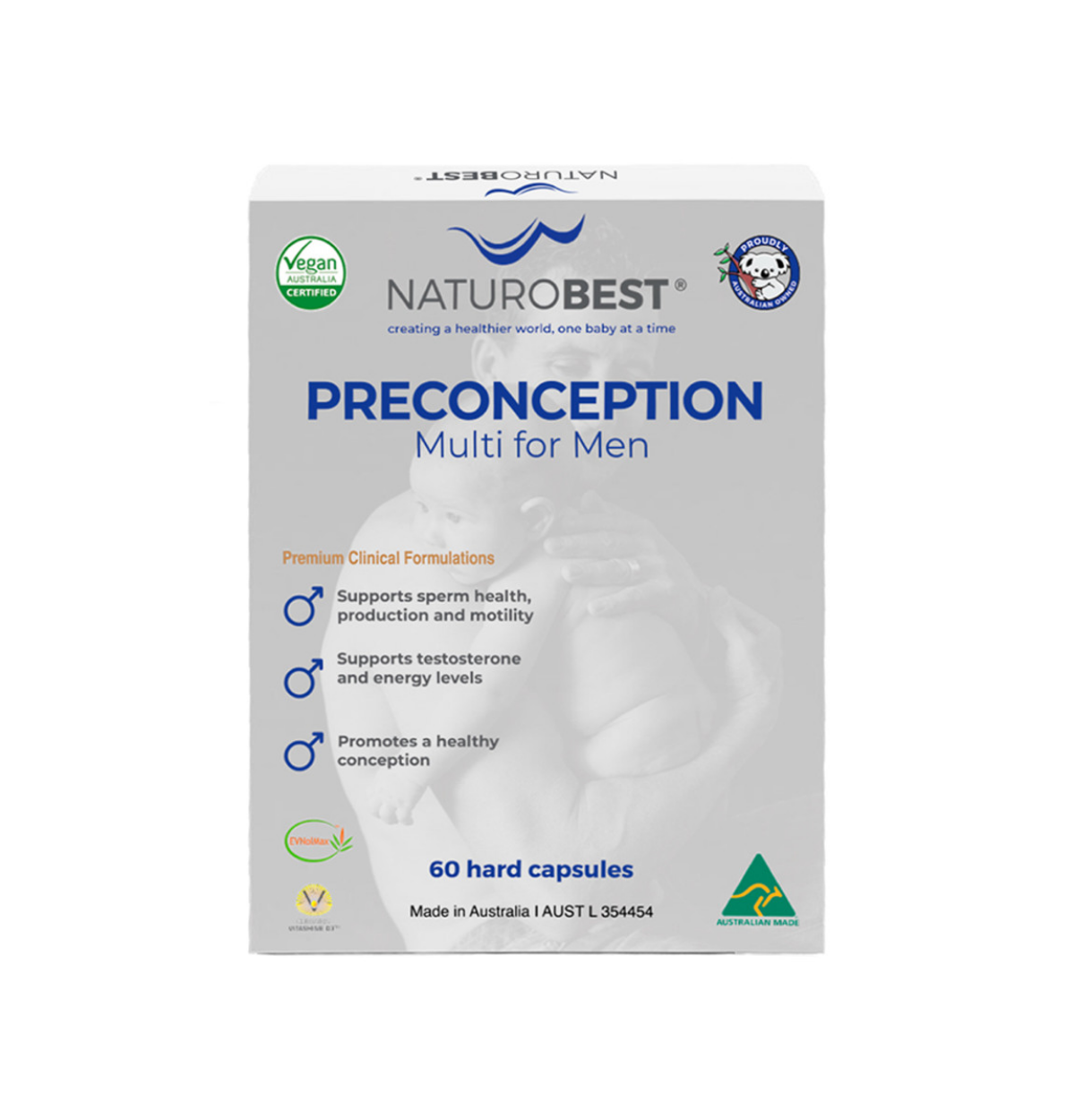HEALTH TOPICS
Best Supplements for Male Fertility
Posted by: Quieta Bail Naturopath (BHSc)
For those of you who don’t know… it takes two to tango! This also applies to making healthy, happy babies. Infertility affects 8-12% of couples worldwide, with approximately 40-50% of cases having a ‘male’ factor to inability to conceive. Since 1980, the fertility rate in men younger than 30 has decreased by 15%, due to various factors. Preconception care for men is therefore extremely important. Along with improved diet and physical activity, male fertility supplements can assist in meeting nutritional recommendations. The aim of most male fertility supplements is to support reproductive hormones, improve sperm health and provide a healthy conception, through key nutrients:
Vitamin B12
Vitamin B12 can improve male infertility as it shows positive effects on sperm parameters such as sperm count, vitality, motility and DNA integrity. B12 is also needed for energy production, decreasing toxicity from homocysteine and improving reproductive organ function through increased libido and improving health of nerves and blood cells.
Zinc
Zinc is one of the most important supplements for the male reproductive system. It not only increases testosterone levels, but also improves sperm count and quality. When deficient in Zinc, sperm generation decreases and can increase sperm abnormalities. Men have a higher need for Zinc due to it being such an integral part of spermatogenesis. Therefore, correcting any deficiency is vital to improve conception.
Vitamin C
There is evidence that shows that Vitamin C may improve fertility. Taking Vitamin C may counteract the effects of Reactive Oxygen Species (ROS), which may promote inflammation and can lead to infertility. This vitamin is also well known to improve sperm motility, quality and count and reduce deformed sperm cell occurrence.
Vitamin E (ALA)
Vitamin E helps to protect sperm cell membranes for damage, as it is a potent antioxidant and inhibits production of ROS. Supplementation also improves motility and function. Combined with Vitamin C and/or selenium, Vitamin E can improve sperm motility and impregnation. Vitamin E also contains alpha-lipoic acid which helps to protect sperm DNA integrity.
Selenium
Selenium is a trace mineral which has antioxidant actions and participates in the maintenance of muscle and red blood cell integrity, synthesizes DNA and RNA and assists in detoxification of heavy metals. It is an integral part in spermiogenesis, with deficiency often resulting in infertility. Supplementing with selenium can therefore correct deficiency, reduce oxidative stress and improve sperm motility.
Sperm production can take 74-78 days, so if you’re considering taking supplements to improve conception, give it at least 3 months. All aspects of dietary and lifestyle should be considered also around this time frame to ensure and improve health outcomes for the baby.
Subscribe to Gr8Health
Sign up to get 5% off your first order, exclusive access to our special offers, new arrivals and more.
